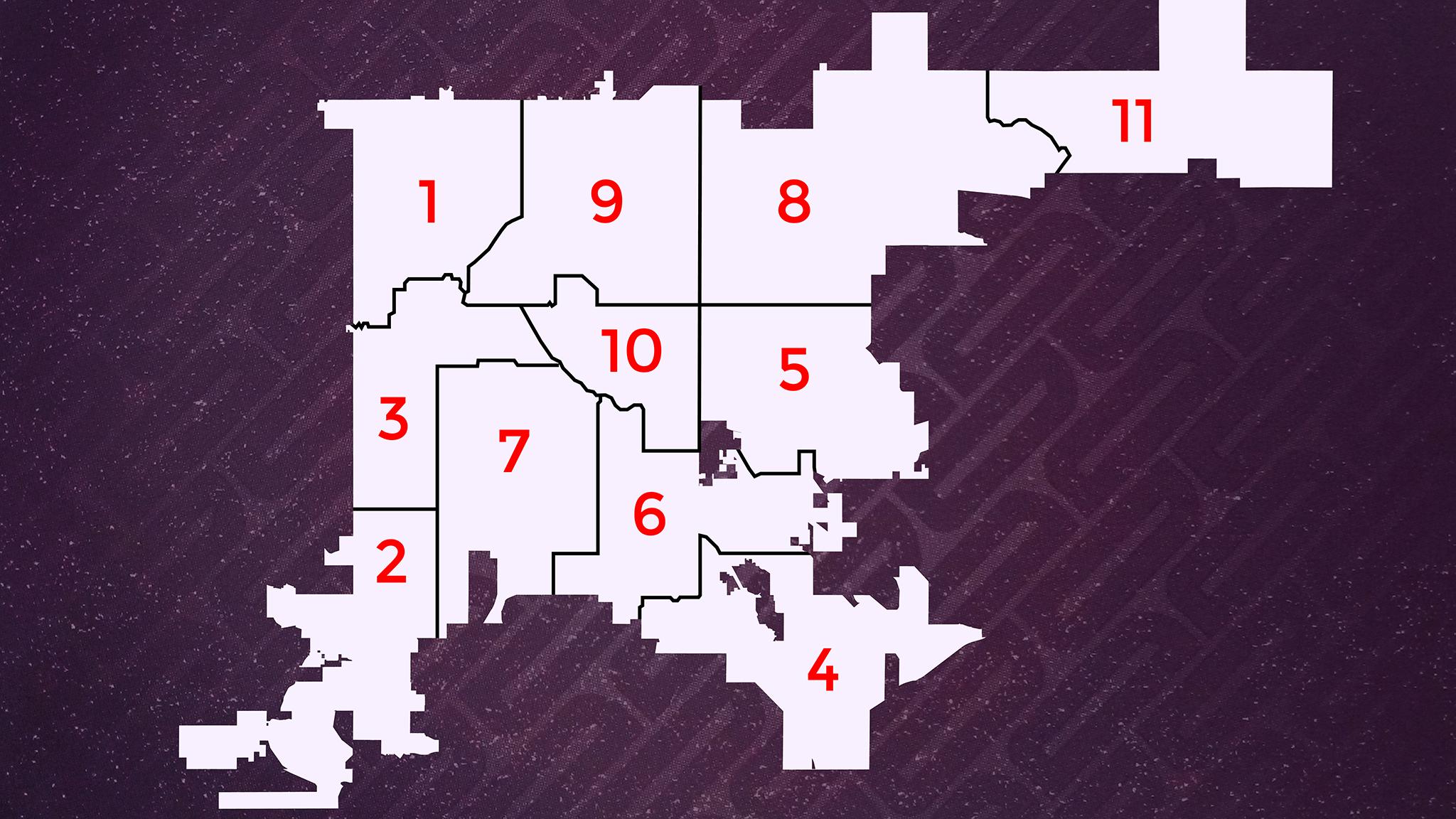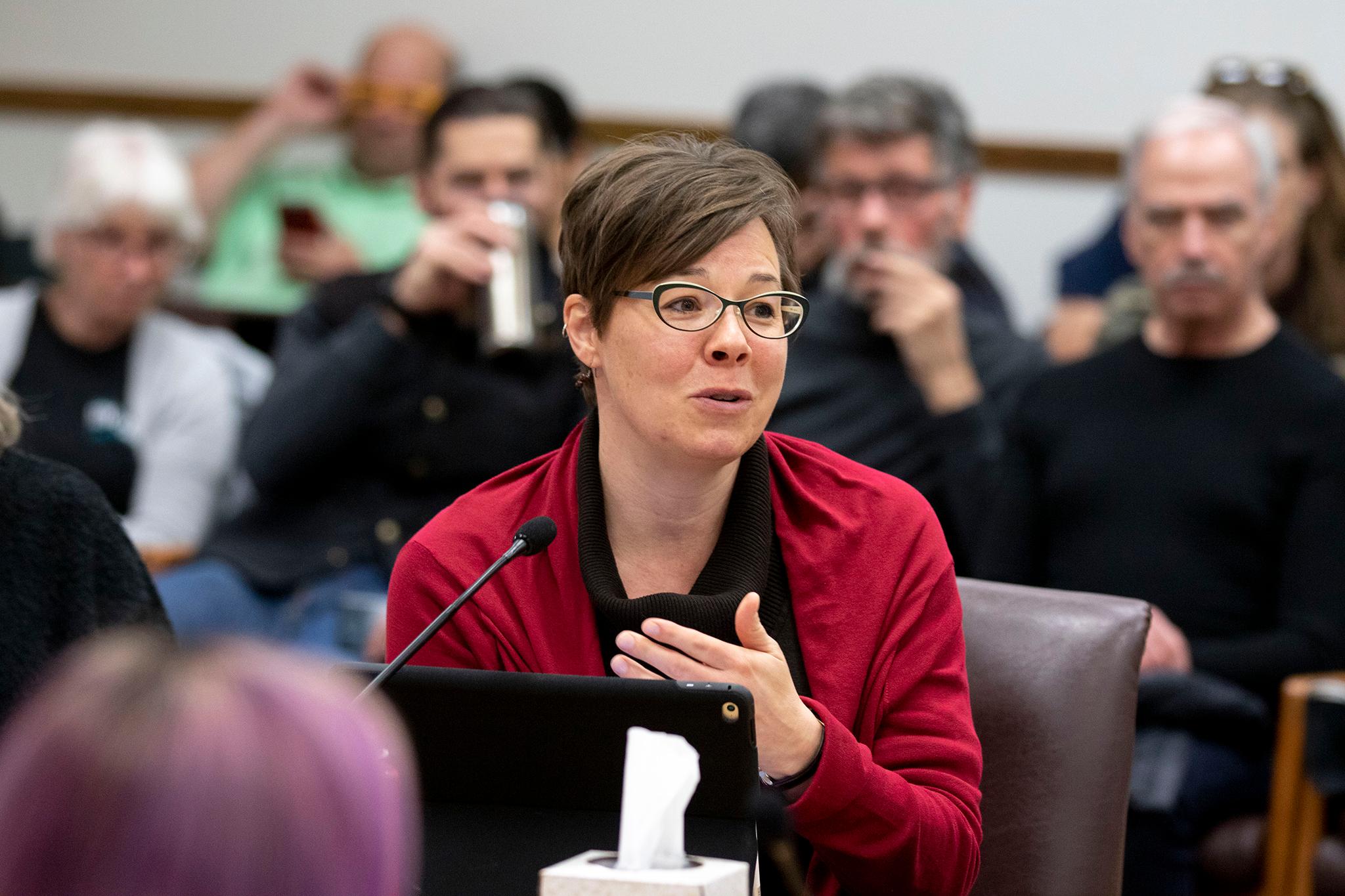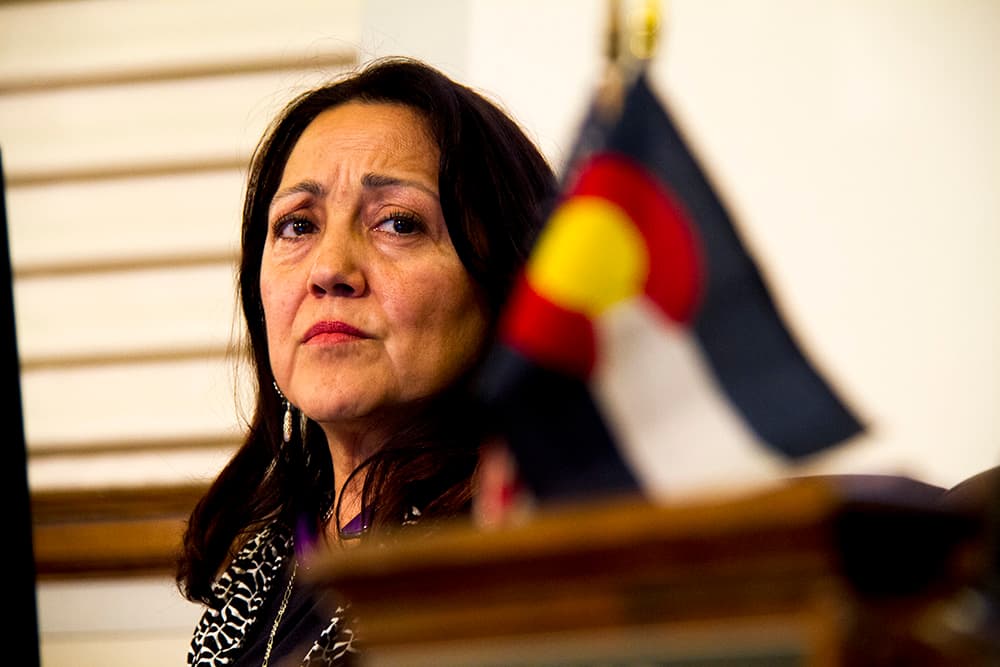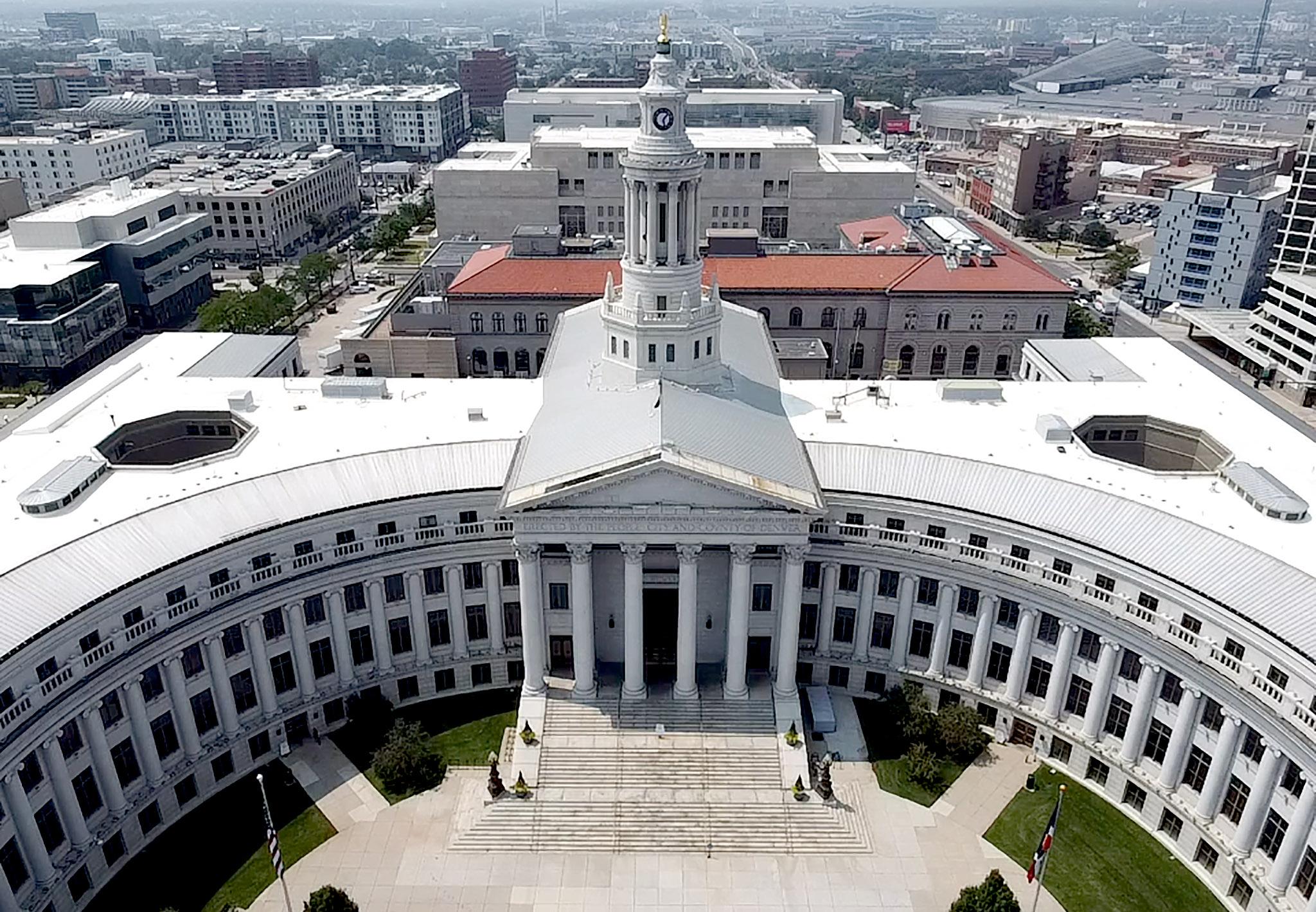Less than an hour before voting in favor of a proposal to eliminate two of his colleague's seats, Councilmember Jolon Clark took a moment to call out the elephant in the room.
Before him and five other Denver City Council members was a question: Should the two at-large seats on the council be eliminated and replaced with two more districts, similar to the one he represents? The council has 13 seats; 11 represent areas within a specific boundary, and two are at-large, effectively representing the entire city.
Sitting eight desks away from one of the people holding an at-large seat, Councilmember Robin Kniech, Clark started his comments on Tuesday by saying the comments from him and others about why the positions should not exist were not a reflection of the current at-large members.
"It hit me a little bit more what this must feel like having one of my constituents speaking at public comment, bashing district representatives," Clark said.

So did Kniech take any of this personally? After all, she's termed out in 2023. She can't run for re-election to this seat even if she wanted to.
"This is a very awkward conversation," Kniech said on Wednesday during a phone interview.
Now, council member's decision on Tuesday does not necessarily mean they want to see the at-large seats eliminated. Rather, it was them saying they were cool with voters deciding whether to remove them, since the proposal would be a ballot measure. And it wasn't binding; it came at the committee level, a step before these things are considered by the full Denver City Council during their Monday meetings, where these decisions are finalized. That won't happen until later this month.
Councilmembers Candi CdeBaca and Kevin Flynn, who often voice conflicting opinions on the dais -- so much so that Flynn made a joke about the odd pairing -- joined Clark in sponsoring the bill, which may be dead on arrival. CdeBaca and Flynn said candidly after Tuesday's meeting they aren't sure whether the bill has enough votes to pass the full council.
CdeBaca outlined why eliminating the at-large seats could be useful.
CdeBaca, who in addition to sponsoring the bill is a voting member of Tuesday's committee, laid out the case for eliminating the seats during a presentation. To start, she referenced a quote from a 2008 study on why single-member districts helped improve representation for underrepresented racial and ethnic groups on the city council.
It illustrated her larger point: Adding two more geographically-based districts could help with overall representation. The two at-large seats were created in 1968 after a charter change. That date is important; it was near the end of the civil rights movement championed by African Americans, and the beginning of the Chicano Movement, according to Metropolitan State University of Denver political science professor Robert Preuhs.
During this time, Preuhs said white voters were starting to get concerned about the growing influence of people of color. Creating at-large seats, then, served as a way to curtail some of their growing influence.
"Those at-large districts have been a way to reduce or undermine minority groups to have a say in city council," Preuhs said. He added district-specific seats often give people of color a chance to represent their communities. "At-large elections mean that it's very rare if not impossible to elect someone who voices those communities."

Current at-large Councilmember Debbie Ortega is one of five Latinas serving on City Council, though a majority of at-large members have been white people. Kniech said she didn't take this concern lightly, adding racial biases are baked into many government systems and pointing out there are other district seats that have never had a person of color represent them.
Ortega said having an at-large member has helped ensure robust debate before certain decisions since these members can bring larger perspectives to discussions (she didn't provide any specific examples). She requested a public hearing on the proposal to give residents an opportunity to speak on it.
Preuhs pointed out that adding two additional district seats likely won't do much for fixing things like the city's housing crisis, homelessness or even gentrification. Ortega said something similar, saying eliminating the seats will do little to solve big picture issues like providing reliable infrastructure or bringing down crime.
"Doing this proposed change doesn't address or solve any of that," Ortega said,
Kniech said voter influence is one of the things the average citizen would lose if the two at-large seats are eliminated.
They would get a little less say on who ends up on the council. Denver voters can currently vote for three people on council: One member for the district they live in, and the two for the at-large seats.
CdeBaca also noted influence, but of a different sort. She suggested at-large seats are more likely to represent special interests, which Kniech called a politically-based argument. More council districts would mean council members would each have fewer constituents, which CdeBaca suggested means elected officials can better represent their needs. CdeBaca's district represents the largest number of voters, at more than 76,000.
"If additional council districts aren't added, our current 11 council districts will be serving an all-time high of over 66,000 constituents per district," CdeBaca said during the meeting. "It's pretty difficult to run our districts at that level."
Kniech noted some people prefer contacting at-large representatives, since their district representatives may not be able to immediately connect with them. It's a point a member of the public who spoke during Tuesday's meeting also made.
"Councilwoman CdeBaca said there is no guarantee that a councilperson at-large will be responsive, but of course, there is no guarantee that your district will as well, as unfortunate as that may be," resident Joel Noble said.
CdeBaca suggested creating two more council districts could add more accountability, because at-large seats represent the entire city but are not answerable to specific constituents.
So, why consider this now?
Well, the two current at-large council members, Kniech and Ortega, can't run for those offices again.
"Nobody would be displaced from their duly-elected seat at this time if we decided to move forward with this change," CdeBaca said.

And the city has started its redistricting process, which is another reason why its supporters believe now is the time to take this up. Basically, what the state is doing right now to redraw its congressional districts, the city needs to do for its 11 council districts, or possibly 13 if the proposal were to pass. The goal is to move lines around to equalize the number of people in each district.
Flynn said these two factors won't match up like this for a while, and if the proposal is brought up again sometime in the future, it could end up pushing someone who's been elected out.
"What I can say is there is no best practice," Flynn said about the potential change. "There is a dominant practice ... nearly two-thirds of the 100 largest cities have no at-large (seats). Eight city councils have only at-large."
The final vote margin on Tuesday to advance the bill was razor-thin. The 4-3 vote included Council President Stacie Gilmore in favor of the proposal, despite not being a voting member of the committee (she gets to vote as president). CdeBaca and Clark voted yes; Kniech and Ortega voted no.













